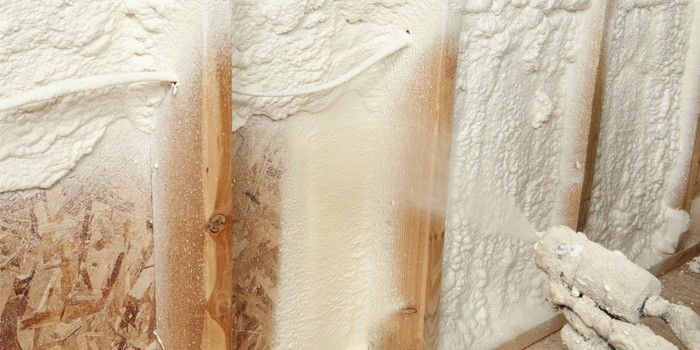
Spray Foam Insulation Tipped to Help Tackle Fuel Poverty
Now that cold, wintry weather is upon us, we can see only too well what hardship vulnerable households may have to contend with if they live in cold housing. The British Urethane Foam Contractors Association represents the spray foam industry and urges specifiers and landlords to evaluate the energy performance of their housing during the ‘Big Energy Saving Week’ (BESW): January 21-27
BESW is a partnership campaign between Citizens Advice, Citizens Advice Scotland, the Department for Business, Energy and Industrial Strategy (BEIS) and numerous other organisations.
Around 11% of all the households in England are estimated to be in fuel poverty according to the annual fuel poverty statistics report 2018, published by the Department for Business, Energy and Industrial Strategy (BEIS).
On the positive side the figures can be brought down and one way to tackle this is by increasing the insulation levels to meet today’s standards. Insulated houses retain their heat for longer making them warmer, cheaper to run and far more comfortable. Indeed, it must also have other benefits such as reduced hospital admissions.
Spray applied or injected polyurethane foam will provide far better insulation than the equivalent thickness of most insulation materials. The foam, spray-applied at rafter level, together with the existing 100mm layer of insulation at joist level, brings the thermal performance right up to today’s stringent standards and even avoids the need to ventilate the roof space.
Injected cavity wall insulation provides an insulating barrier and provides stability to the walls, avoiding the expensive job of replacing wall ties. The foam is also beneficial in hard-to-treat properties which are unsuitable for other materials, or for homes at risk of flooding, where other products might not survive.
Due to the expanding properties of the foam, air leakage, draughts and cold spots are eliminated, providing superior energy-saving insulation and carbon savings.






